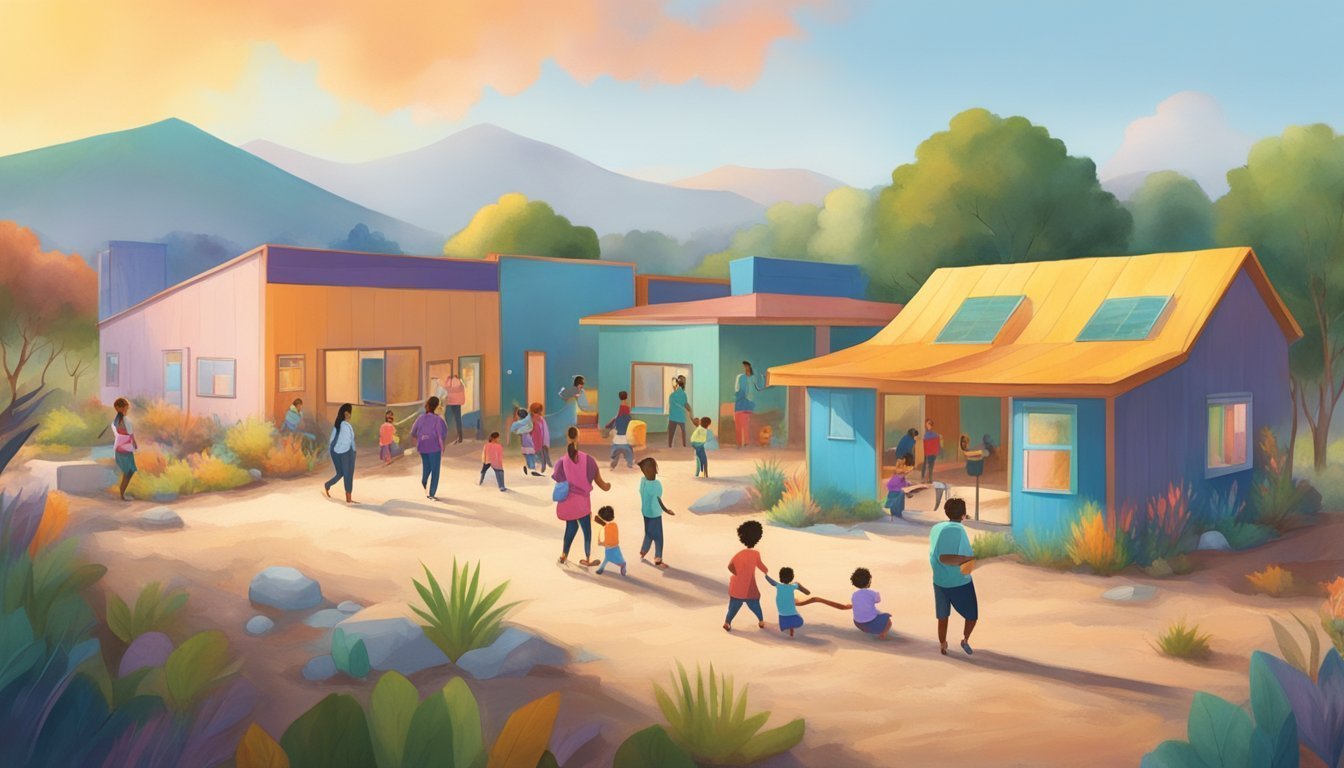Impact on Families
In just a heartbeat, everything changed for Blanca Carrillo and her daughter, Aurys Hernandez.
Their home in Altadena, which also served as a thriving daycare center, was engulfed by the Eaton Fire.
Now, they find themselves without a place to live and without jobs.
“We lost our entire life overnight,” Carrillo lamented, explaining that they have moved in with a relative in Arcadia as they grapple with the aftermath of their loss.
Their situation exemplifies a larger crisis unfolding across Los Angeles County, where numerous families are faced with the daunting task of rebuilding after the devastation of the fires.
Childcare providers, in particular, find themselves in a tough spot, acknowledging their critical role in helping families reestablish stability.
However, many are struggling with their own recovery efforts while trying to maintain their services.
There’s an urgent need for a new home to restart their daycares.
Compound Issues in the Sector
Recent data from L.A. County indicates that over 500 licensed childcare spaces have been impacted by the fires, translating to roughly 7% of the county’s childcare facilities.
While some centers have begun to reopen, others are still in the cleanup phase, and some have been lost entirely—what were once nurturing environments for young children now lie in ruins.
Debra Colman, head of the L.A. County Office for the Advancement of Early Care and Education, emphasized the dire state of the childcare industry in Los Angeles, which was already strained before the fires hit.
With only about 8,000 licensed facilities serving over 750,000 children, the ratio stands at nearly 94 children for each provider.
The childcare landscape resembles a patchwork, comprising home-based setups, houses of worship, and educational institutions.
The fires’ destruction has spread across all types of facilities.
The B’nai Simcha Jewish Community Preschool, located at the Pasadena Jewish Temple & Center, was entirely destroyed, as was the Altadena Children’s Center, previously housed in the now-ruined Altadena Baptist Church.
Rebuilding will not be a quick process for either center.
Support and Recovery Efforts
Leslie Carmell from Options for Learning, an organization partnering with childcare providers, asserted that the immediate priority must be finding new homes for these educators.
She underscored the ongoing struggle to secure affordable housing in Southern California, a critical issue that demands attention.
Additionally, various concerns regarding licensing, emergency funding, and aid similar to that provided during the COVID-19 pandemic linger unaddressed among childcare professionals.
Toni Boucher, a former director at the Altadena Children’s Center, remarked that many of these programs operate on shoestring budgets.
She urged government support equivalent to what was offered during the pandemic to help restore the community’s lost childcare spaces.
A silver lining from the pandemic has been the strengthened network among childcare providers.
Susan Wood, executive director of the Children’s Center at Caltech, shared that she and Boucher have revived their regular online meetings to provide mutual support following the recent fires.
As some childcare providers contemplate their rebuilding strategies, others are actively increasing their capacity to support families in need during this crisis.
Jodi Mason, who runs a home-based daycare in Pasadena, had to evacuate last week, bringing several of her charges with her.
Remarkably, she was able to reopen her facility just days later, now welcoming four new children who lost their previous daycare due to the fires.
Mason is keenly aware of the emotional impact these upheavals can have on children, who thrive on the familiarity their caregivers provide.
She is wholeheartedly committed to offering the care and support necessary to help them navigate this challenging transition.
Source: The74million


